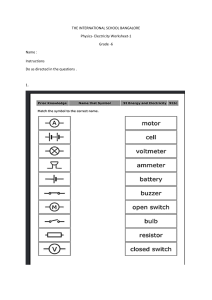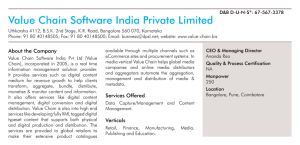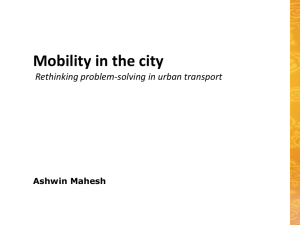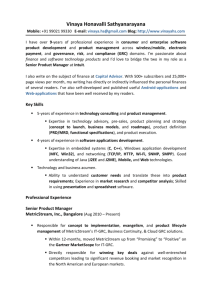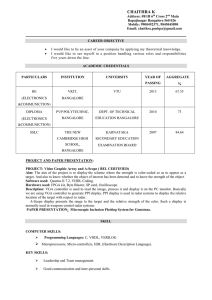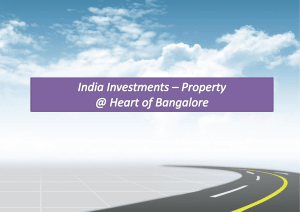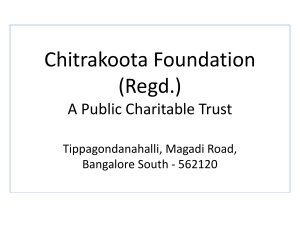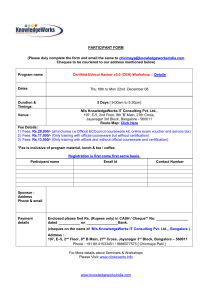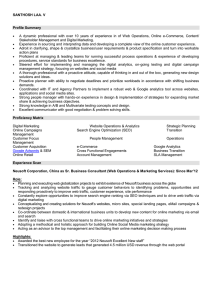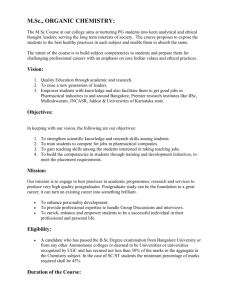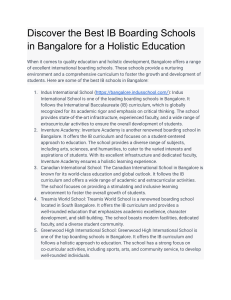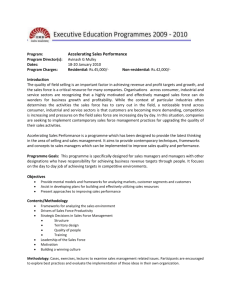Click here to view his Presentation
advertisement
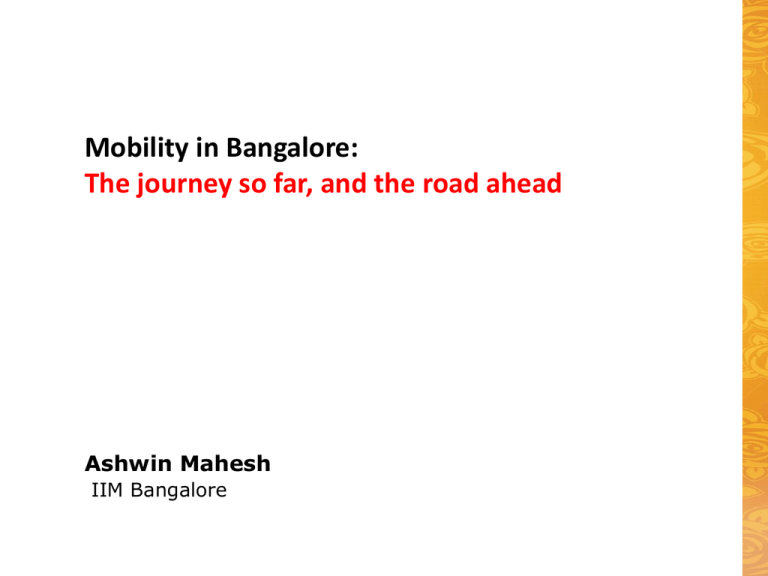
Mobility in Bangalore: The journey so far, and the road ahead Ashwin Mahesh IIM Bangalore A program of continuous improvement A new space for many more stakeholders Enabling knowledge-based changes A growing urban area 8 million people in BBMP, with continuing migration linked to new jobs and opportunities. About 150,000 people move into the city each year. Set within an even larger region of growth! Another 2-3 million in larger metropolitan region. Growth rates outside BBMP are even higher, in some directions. Plenty of unorganised development, which needs to be streamlined. Central Government - Urban Development Housing Foreign investment Environment Transport State Government - Urban Development Transport Traffic Police Emergency Planning Utilities Housing (regulation, schemes) BMTC Metro (with Centre) Municipality - Road, footpaths, drains Utilities Building bye laws Point of contact for citizens So, where do we begin? a regional view identify who should do what must begin now must have the force of law must deliver value to citizens must measure progress regularly MPC for Bangalore / BMRG Bill Ø Ø Ø Ø Ø Ø Ø Ø Ø Ø Ø Ø Roads, Traffic and Transportation Public Safety and Security Urban Poverty Alleviation Heritage Water and Sanitation The Urban Environment Education Public Health Power Housing Tourism Financing Bangalore PlanBengaluru Transportation - Strengthen public transport services and infrastructure - Apply technology to improve management, as well as planning - Maximise use of existing infrastructure; new projects can wait - Create an independent focus on NMT – pedestrians, bicyclists - Tighten zoning, building-bye laws, and design of public spaces The journey so far Tele-density from mobile tower network GPS units on city buses, other vehicles Police traffic cameras at junctions Integrated view of live traffic conditions Accessible through SMS Violation reports through SMS Blackberry-powered enforcement Plenty of real-world learning and fun! Asset management • Cameras, signals, modems monitored 24x7 • Downtime leads to automatic SMS alert to crews • Resolution time monitored for performance • Escalation matrix for unresolved issues Mapping accident hot-spots Bangalore Transport Information System India’s first Traffic Management Centre Direction-based bus services along with significant fleet expansion Communication Design Revenue and kilometers Coming …. Branded feeders Junction redesign Junction elimination instead of road widening Ducting utilities on 14 arterial roads A dedicated budget for footpaths Metro-Zone footpaths – 30km this year The road untraveled Design! Indifference to pedestrians A standard design for all infrastructure Work-zone management, please? Very slow construction Can we create public squares? Transit Centres – Location, Design Transit Centres – Location, Design Lack of continuous data collection Bicycling – beyond enthusiasm? Can we put a proper price on use of public spaces? What’s the best use of our funds? Indirect revenue sources 1. Higher property taxes 2. Development rights in ‘zone of benefit’ 3. Congestion pricing on private modes 4. Fuel taxes on private transport vehicles 5. Carbon credits, in some cases Town planning – miles to go Housing disconnected from jobs … jobs here homes here … Need a ‘regional’ view of mobility Bangalore Commuter Rail, praja.in Summary Techno-managerial interventions are ongoing Participation by institutional and other stakeholders is rising Policy framework and support is weak Integration with urban development is missing
